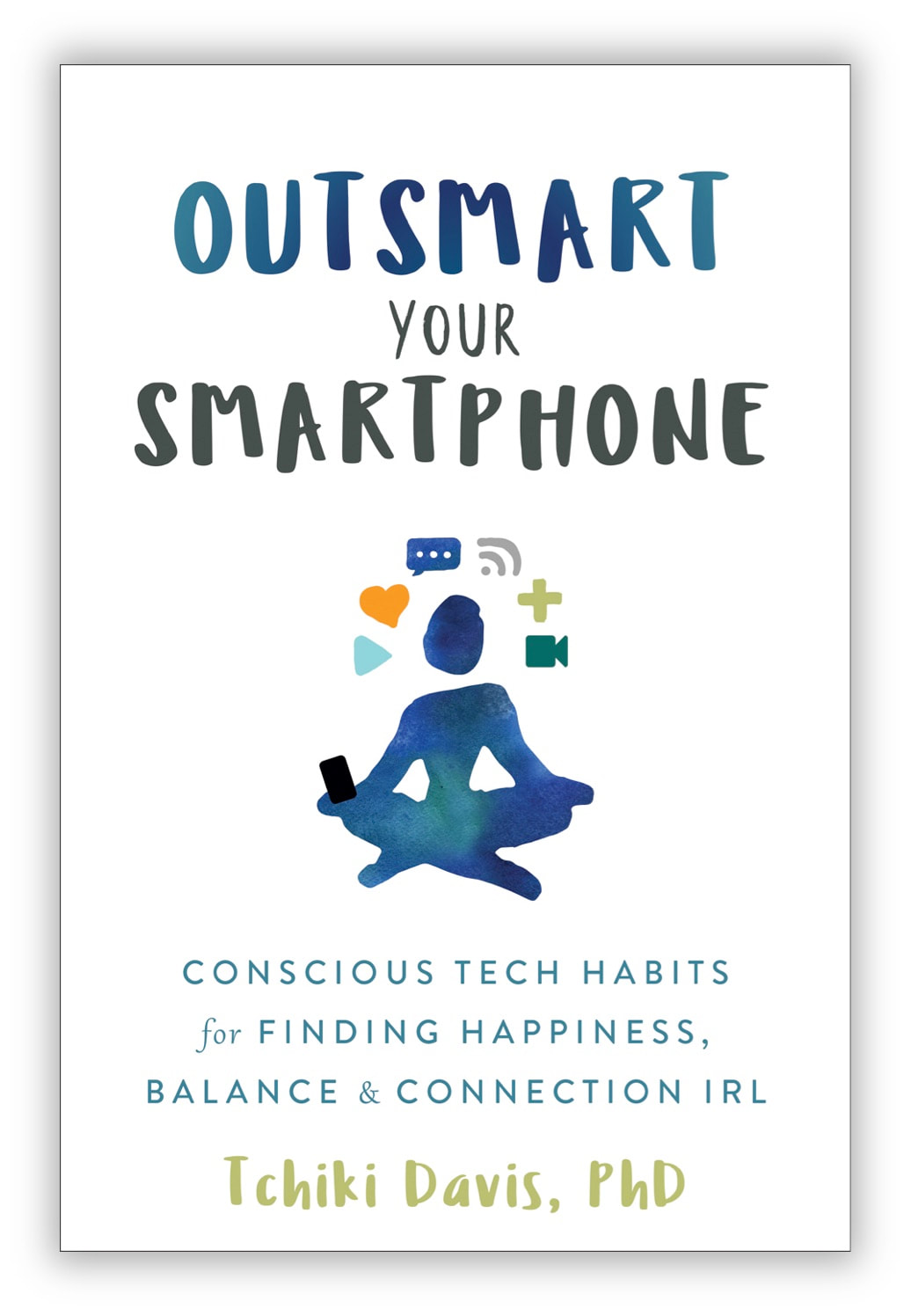Feeling Sad? Try These 20 Science-Based Depression BustersWhat does it mean to feel sad and how do you take action to reduce sadness? Here are a bunch of science-based strategies to beat sadness and depression.
*This page may include affiliate links; that means I earn from qualifying purchases of products.
What Does It Mean to Feel Sad?Sadness is having grief, sorrow, or unhappiness. Sadness is also closely related to feelings of poor self-worth. Sadness is also a key aspect of depression. In fact, feeling sad can lead to the development of other symptoms of depression including sleeping and eating difficulties. Luckily, if you're feeling sad there are lots of things you can do to feel better.
How Is Feeling Sad Different From Depression?Often when we are sad, we say, "I'm depressed". This may be true, but the clinical definition of depression includes sadness as well as several other closely related symptoms like pessimism, self-dislike, insomnia, loss of appetite, and more [1]. Approximately 17% of the population will experience a Major Depressive episode at some point in their life [2]. If you're not sure if you're sad or depressed, here's a depression quiz that might help. If you need professional advice, please consult a trained therapist.
Regardless of whether you're sad or depressed, these 20 science-based strategies can be helpful. 1. Learn How to Create More Positive EmotionsPositive emotions are a powerful way to undo negative emotions like sadness. Positive emotions broaden our thought processes and build on themselves [3]. They create upward spirals of positivity. That’s why doing whatever we can to create more positive emotions is key to reducing our feelings of sadness. You can generate positive emotions in a variety of ways such as improving your ability to think positive, practice gratitude, and find things that are meaningful. So try to build your positive emotions and begin to undo sadness.
Are You a Therapist, Coach, or Wellness Entrepreneur?
Grab Our Free eBook to Learn How to
|
4. Outsmart Your SmartphoneThese days we’re on our phones 24-7. But we have to be careful because spending too much time on our phones or the Internet is associated with higher levels of depression and loneliness [6]. But it's important to know that some types of Internet-use are actually good for us [7]. So, learn how to outsmart your smartphone and develop a relationship with technology that helps you when you're feeling sad.
|
5. Decrease Your Stress
Research suggests that depression is associated with HPA-axis dysfunction. The HPA axis is responsible for regulating cortisol and our stress response [8]. So explore stress reduction techniques and relieve your stress to stop feeling sad.
6. Improve Communication Skills
Sometimes we feel sad as a result of feeling lonely or isolated. That's why improving our social skills can help with sadness. When we engage in active listening, communicate kindly, and stand up for ourselves we can ensure more positive social interactions that can make us feel less sad.
7. Work on Shutting Down Rumination
Have you ever gotten stuck thinking about what went wrong in the past or worrying about what could go wrong in the future? That’s rumination, and it's a main feature of depression [9]. To stop the rumination that's fueling your sadness, shift your thoughts to an unrelated problem, or do a distracting activity. These strategies can help you get out of this sadness cycle.
8. Try Not to Expect the Worst
We often think about the worst case scenarios. We do this as a coping strategy and we think we're helping ourselves by mentally preparing for the worst. But it actually just makes us feel worse. Suddenly feeling sad can turn into feeling anxious, upset, or even overwhelmed. So try to remind yourself that the worst thing rarely happens and attempt to shift your thoughts to feel less sad.
9. Try Not to Be Self-Critical
Challenging self-critical thoughts can be helpful in reducing sadness. To do this, try to look for evidence that your self-critical thought is incorrect or try to find more positive interpretations. By challenging your self-critical thoughts, your brain can learn new ways of thinking that can help curb sadness.
10. Give Mindfulness a Try
Mindfulness involves awareness and acceptance of thoughts, emotions, and bodily states. Mindfulness can help to deactivate negative thinking styles that lead to sadness and activate acceptance and self-compassion. To practice this skill, pause, pay attention to your negative emotions and attempt to approach them with kindness, empathy, and patience rather than anger or judgment.
11. Use Cognitive Reappraisal
Reappraisal can help us reinterpret a sad situation in a more positive (or less negative) way. Some of us have poor reappraisal skills and this can contribute to higher levels of sadness and depression [9]. Luckily, we can improve our reappraisal skills. To practice, reappraise the sad situation by thinking about what’s good in the situation (or how lucky you are that the situation isn’t worse). By regularly practicing this strategy, you can get better at it and it can help you stop feeling sad.
12. Express Yourself Through Writing
Lots of research has explored the benefits of writing about your most intense emotional experiences. The goal of this type of writing is to let go and explore your real emotions. In one study, doing expressive writing for 45 minutes, 3 times per week for 3 weeks resulted in lowered depression [10]. So if you have sadness that was never fully resolved, this may be a good strategy for you.
13. Make a Plan
Because there are many actions you can take to stop feeling sad, making a "happiness plan" can be helpful for reaching your goals. For example, you could plan to try one new sadness-busting trick each week. Or, you could schedule what you plan to do in your calendar so you don't forget.
14. Read Some Self-Help Books
There are so many science-based self-help books out there that can help with sadness. One study found that people who read the book by David D. Burns entitled, Feeling Good, resulted in lowered depression symptoms [10]. Other science-based self-help books are also likely helpful for reducing sadness.
15. Take Online Courses to Boost Happiness
In addition to self-help books, online courses can also teach us things that help us feel less sad.
16. Boost Serotonin Levels
Deficiencies in serotonin are common in depressive disorders. So how do we naturally increase serotonin? One way is to eat more carbohydrates because eating carbohydrate-rich food increases serotonin in the brain. Another way is to take 5-HTP supplements. This ensures you have the building blocks needed to make serotonin.
17. Use Your Diet to Decrease Sadness
One of the most surprising examples of how diet affects mental health has to do with sugar. Intake of sugar has consistently been linked to higher depression [11]. So if you’re feeling sad consistently, eating a healthier diet with reduced sugar could be really helpful.
18. Exercise Outdoors
Getting moderate to vigorous intensity activity has been linked to lower risk of depression. Aerobic exercise, in particular, may contribute to higher levels of serotonin [12]. So get outdoors in the sun and fresh air or go for regular walks to bust sadness.
19. Work on Sleeping Better
Insomnia predicts greater risk of developing depression [11]. So improving sleep may be helpful when you want to stop feeling sad. Some ways to improve sleep include establishing regular sleep times, adjusting diet in ways that aid sleep, and changing thought patterns that can negatively affect sleep.
20. Try Not to Obsesses About It
None of us wants to feel sad. Luckily, there are many actions we can take to grow our happiness. But we have to be careful because obsessing about happiness, or our lack of happiness, can increase negative emotions. If we worry too much about being sad, we are actually doing ourselves more harm than good. So try to focus on taking actions that decrease your sad feelings and improve your quality of life.
Articles Related to Feeling Sad
Want to learn more? Check out these articles:
Books Related to Feeling Sad
If you’d like to keep learning more, here are a few books that you might be interested in.
Final Thoughts on Feeling Sad
Although there are lots of ways to beat sadness, sadness also has some benefits. It can help us get emotional support, take a step back, and rest when we need it. So remember, it's okay to feel sad. And when you're ready, you can use the tools presented here to feel better.
Video: Feeling Sad
Don't Forget to Grab Our Free eBook to Learn How to
Grow Your Wellness Business Exponentially!
References
- Beck, A.T. and R.A. Steer, Internal consistencies of the original and revised Beck Depression Inventory. Journal of Clinical Psychology, 1984. 40(6): p. 1365-1367.
- Blazer, D.G., et al., The prevalence and distribution of major depression in a national community sample: the National Comorbidity Survey. Am J Psychiatry, 1994. 1(994): p. 1.
- Fredrickson, B.L., et al., The undoing effect of positive emotions. Motivation and emotion, 2000. 24(4): p. 237-258.
- Rohde, P., N.C. Feeny, and M. Robins, Characteristics and components of the TADS CBT approach. Cognitive and behavioral practice, 2005. 12(2): p. 186-197.
- Koole, S.L., et al., The cessation of rumination through self-affirmation. Journal of Personality and Social Psychology, 1999. 77(1): p. 111.
- Kraut, R., et al., Internet paradox: A social technology that reduces social involvement and psychological well-being? American psychologist, 1998. 53(9): p. 1017.
- Shaw, L.H. and L.M. Gant, In defense of the Internet: The relationship between Internet communication and depression, loneliness, self-esteem, and perceived social support. Cyberpsychology & behavior, 2002. 5(2): p. 157-171.
- Charmandari, E., C. Tsigos, and G. Chrousos, Endocrinology of the stress response. Annu. Rev. Physiol., 2005. 67: p. 259-284.
- Garnefski, N., et al., Cognitive coping strategies and symptoms of depression and anxiety: a comparison between adolescents and adults. Journal of Adolescence, 2002. 25(6): p. 603-611.
- Stice, E., et al., Randomized trial of a brief depression prevention program: An elusive search for a psychosocial placebo control condition. Behaviour research and therapy, 2007. 45(5): p. 863-876.
- Knüppel, A., et al., Sugar intake from sweet food and beverages, common mental disorder and depression: prospective findings from the Whitehall II study. Scientific reports, 2017. 7(1): p. 1-10.
- Lopresti, A.L., S.D. Hood, and P.D. Drummond, A review of lifestyle factors that contribute to important pathways associated with major depression: diet, sleep and exercise. Journal of affective disorders, 2013. 148(1): p. 12-27.
Are You a Therapist, Coach, or Wellness Entrepreneur?
Grab Our Free eBook to Learn How to Grow Your Wellness Business Fast!





